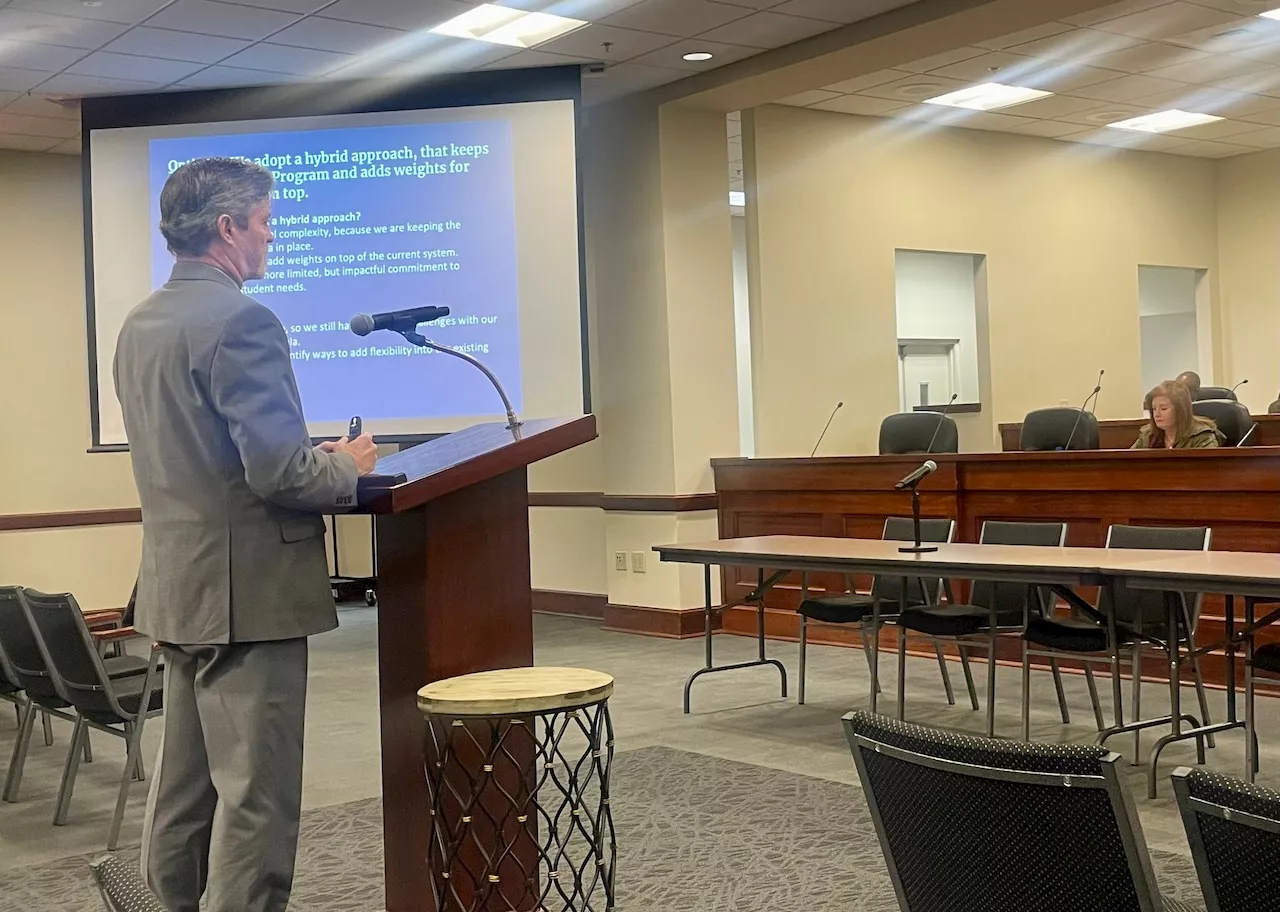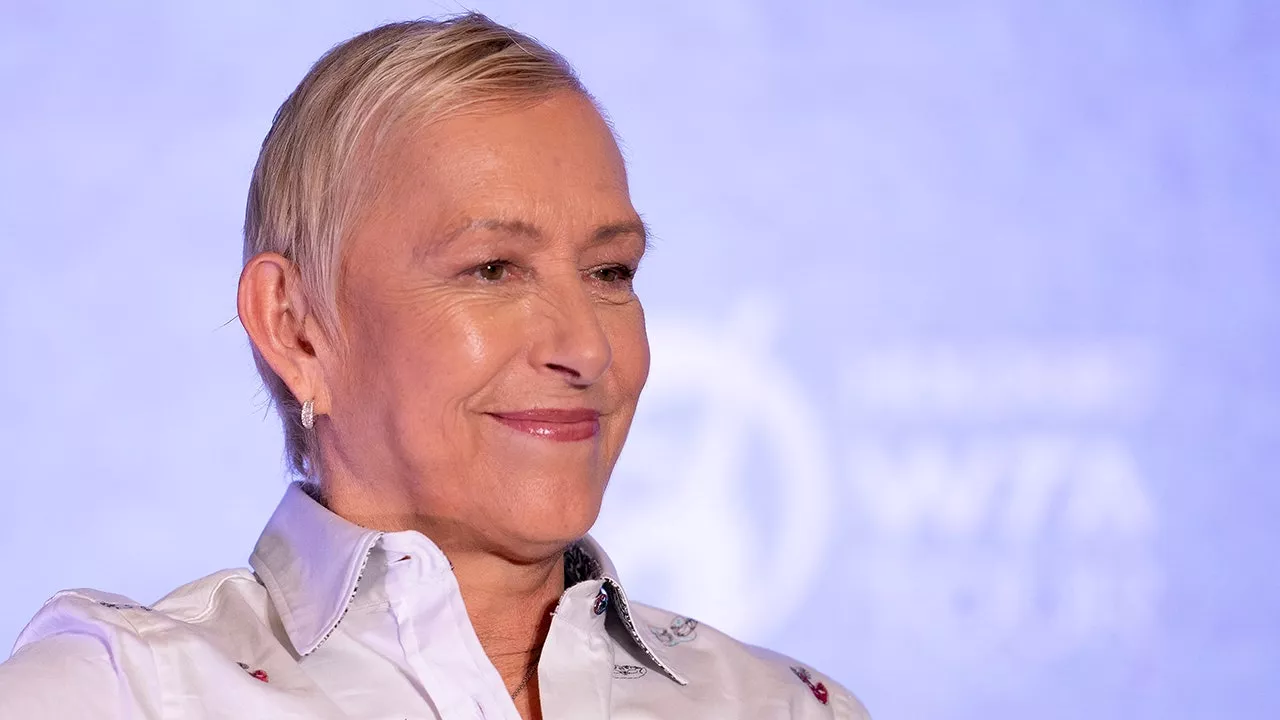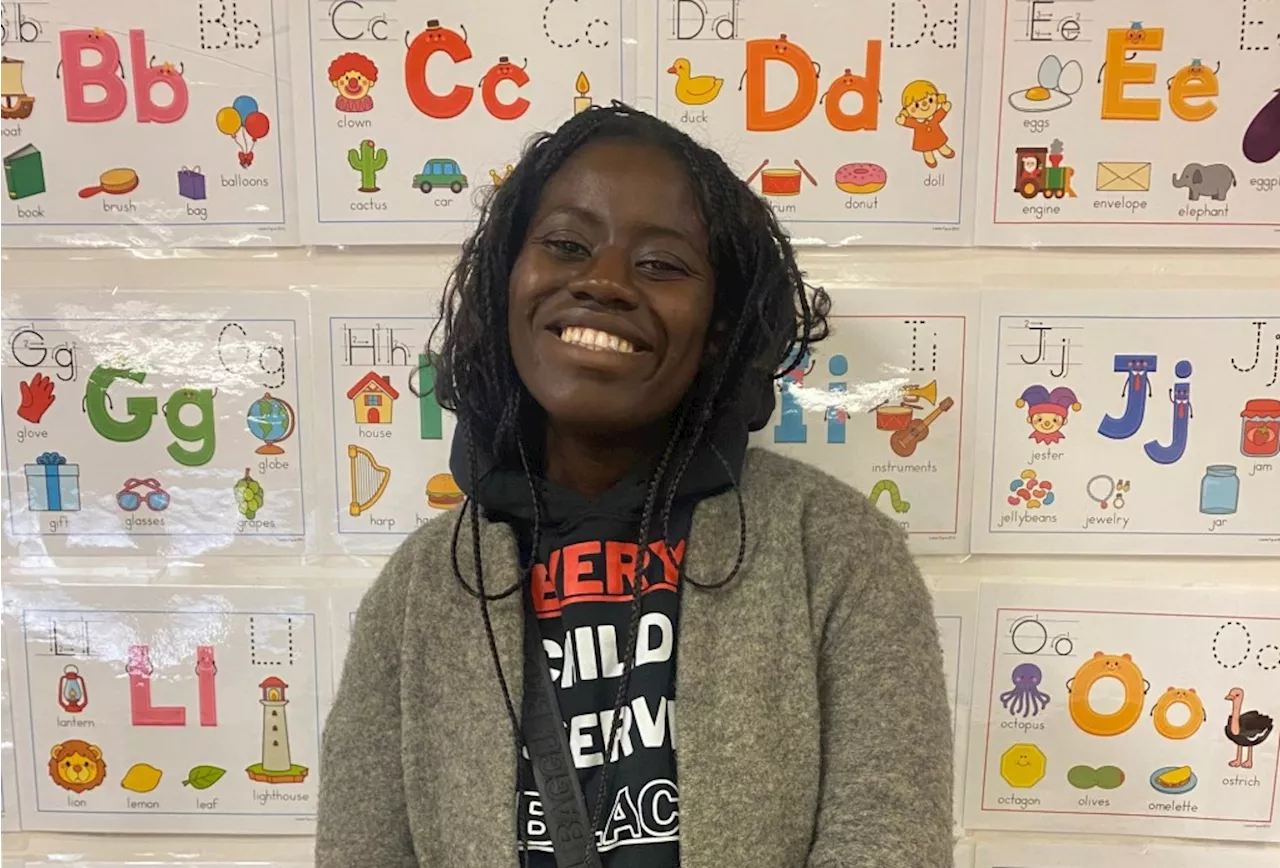This article highlights the concerning achievement gap between students with disabilities and their non-disabled peers, emphasizing the need for better support and training for teachers. It uses a personal anecdote about a student named Alex to illustrate the challenges faced by both teachers and students with disabilities in inclusive classrooms.
Public school teacher Alicia Simba in her Oakland classroom. Students with disabilities are lagging significantly behind their non-disabled peers on the Nation’s Report Card.When the Nation’s Report Card was released last month, it reiterated a hard truth about our education system today: We are failing our students with disabilities. Students with disabilities continue to lag significantly behind their non-disabled peers.
On the reading assessment administered by the National Assessment of Educational Progress (NAEP), fourth graders with disabilities scored 29 points lower than their non-disabled peers, and in both math and reading, eighth-grade students with disabilities saw a decrease in their NAEP scores since previous results from 2022. This achievement gap reflects an ongoing crisis likely to worsen with inaction. Over the last 40 years, the number of students with disabilities has doubled to over 7 million children today. If trends continue and these numbers rise but we refuse to change how we serve students with special needs, we risk denying millions of children their right to a high-quality education. Improving outcomes for students with disabilities will require increasing the number of special education teachers to meet rising demand, as well as providing more support and training for general education teachers like me. If we want to see change, all teachers need the support necessary to make that happen.A few years ago, in my transitional kindergarten classroom in Oakland, I had a bright, curious and ridiculously cute student named Alex. At 5 years old, he could read any paragraph I put in front of him, answer questions enthusiastically during story time, and grin from ear to ear on the playground with his peers. And in hard moments, Alex would scream, cry or run to crawl onto my lap. Sometimes all three. If his favorite fork was missing, if an assembly disrupted our schedule, or if it got too loud in the classroom, Alex fell apart and required lots of reassurance to calm back down. Alex is one of the millions of public students with a disability. They include students with a learning disabilities such as dyslexia or dyscalculia, speech impairments, chronic illnesses and autism — like Alex. AlthoughWhen Alex had a hard time, I often had to pause or abandon my lesson, disrupting the learning for all my students. And rarely is there only one student like Alex in a classroom. As soon as Alex calmed down, I could turn around to find my nonverbal student getting ready to throw a chair because his needs weren’t being met. Or I needed to move a child out of the way for my student on crutches. Or I missed a student crying at her desk because she couldn’t tell the difference between the numbers we were learning about. Inclusion works better than segregation — but we are still not doing right by students with disabilities when we are unprepared and ill-equipped to ensure their success. We can and should do better.California teachers demand better pay, fully staffed schools as districts battle financial woes. Teacher preparation programs should include multiple courses on how to support students with disabilities before teachers begin their careers. I had only one class out of the 18 required for my degree that focused on supporting students with special needs, but it gave me a wealth of knowledge I was able to draw on. We learned about the services students could receive in the classroom, and years later I was able to advocate for Alex to receive time with an instructional aide who would support him academically and socially-emotionally, freeing me to work with other students. Moreover, general education teachers need ongoing opportunities to grow their knowledge. I’ve been able to attend professional development trainings, online webinars and conferences where I left with strategies that helped me teach both special education and general education students. I learned to provide Alex with a calming area, a visual schedule and soundproof headphones to help him develop self-regulation skills and thrive in school. General education teachers need access to professional development to improve their practice. By the end of the school year, good days had become the norm for Alex. My hope is that, in the years before 4th and 8th grade, he continues to grow and succeed. But for that to happen, he will need teachers who know how to serve him best. No small feat, but not an impossible task. For students to do well, teachers need to do well too. Our students deserve no less.
STUDENTS WITH DISABILITIES ACHIEVEMENT GAP TEACHER TRAINING INCLUSION SPECIAL EDUCATION
United States Latest News, United States Headlines
Similar News:You can also read news stories similar to this one that we have collected from other news sources.
 Bill Maher Blasts Department of Education for Failing StudentsBill Maher argues on HBO's 'Real Time' that the Department of Education is ineffective and may be contributing to declining reading scores among American students.
Bill Maher Blasts Department of Education for Failing StudentsBill Maher argues on HBO's 'Real Time' that the Department of Education is ineffective and may be contributing to declining reading scores among American students.
Read more »
 Students up nearly 8% in English proficiency, DCS saysThe data includes students who already speak English, as well as students who are learning English.
Students up nearly 8% in English proficiency, DCS saysThe data includes students who already speak English, as well as students who are learning English.
Read more »
 Alabama lawmakers aim to close funding gap for rural, poor schoolsLawmakers weigh plans to allocate additional resources to English learners, gifted students and poor students.
Alabama lawmakers aim to close funding gap for rural, poor schoolsLawmakers weigh plans to allocate additional resources to English learners, gifted students and poor students.
Read more »
 Martina Navratilova Slams Democrats for Failing Women's SportsTennis icon Martina Navratilova criticizes the Democratic Party for not adequately protecting women's sports, following President Trump's executive order aimed at safeguarding girls and women's sports.
Martina Navratilova Slams Democrats for Failing Women's SportsTennis icon Martina Navratilova criticizes the Democratic Party for not adequately protecting women's sports, following President Trump's executive order aimed at safeguarding girls and women's sports.
Read more »
Texas 10 Most Wanted Fugitive Wanted for Failing to Register as Sex OffenderMichae Evan Scott, 40, is wanted by the Texas Department of Public Safety for failing to register as a sex offender and violating parole. Scott has a history of convictions for aggravated robbery and indecency with a child by exposure.
Read more »
 Senate Democrats Criticized for Failing to Obstruct GOP Agenda Despite Warnings of Constitutional CrisisSenate Democrats faced criticism for not actively obstructing the Republican agenda, despite warnings about an escalating constitutional crisis fueled by President Trump and Elon Musk. While Democrats slowed down some procedural votes, they ultimately allowed the GOP to adjourn for a three-day weekend without objection, infuriating advocates who urged them to utilize all available tactics to resist the Trump-Musk agenda.
Senate Democrats Criticized for Failing to Obstruct GOP Agenda Despite Warnings of Constitutional CrisisSenate Democrats faced criticism for not actively obstructing the Republican agenda, despite warnings about an escalating constitutional crisis fueled by President Trump and Elon Musk. While Democrats slowed down some procedural votes, they ultimately allowed the GOP to adjourn for a three-day weekend without objection, infuriating advocates who urged them to utilize all available tactics to resist the Trump-Musk agenda.
Read more »
